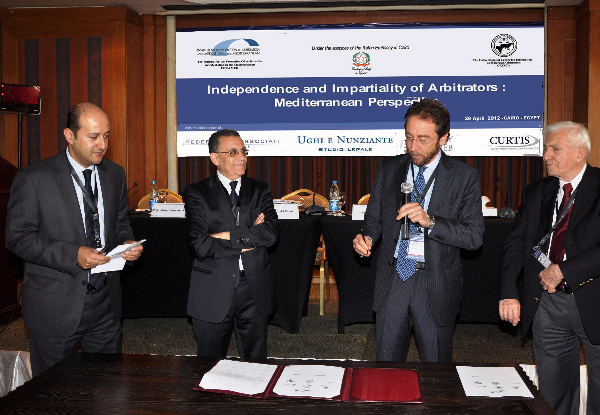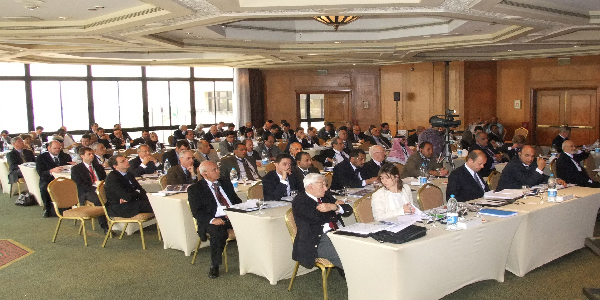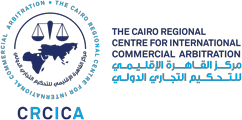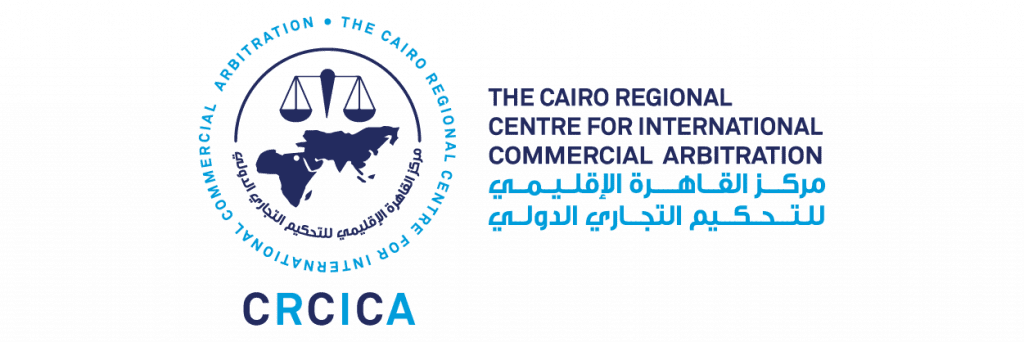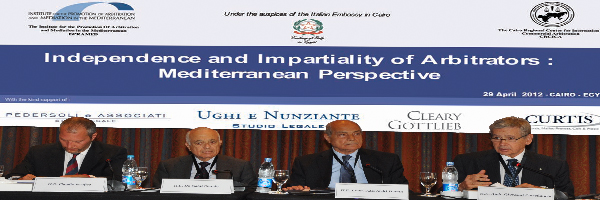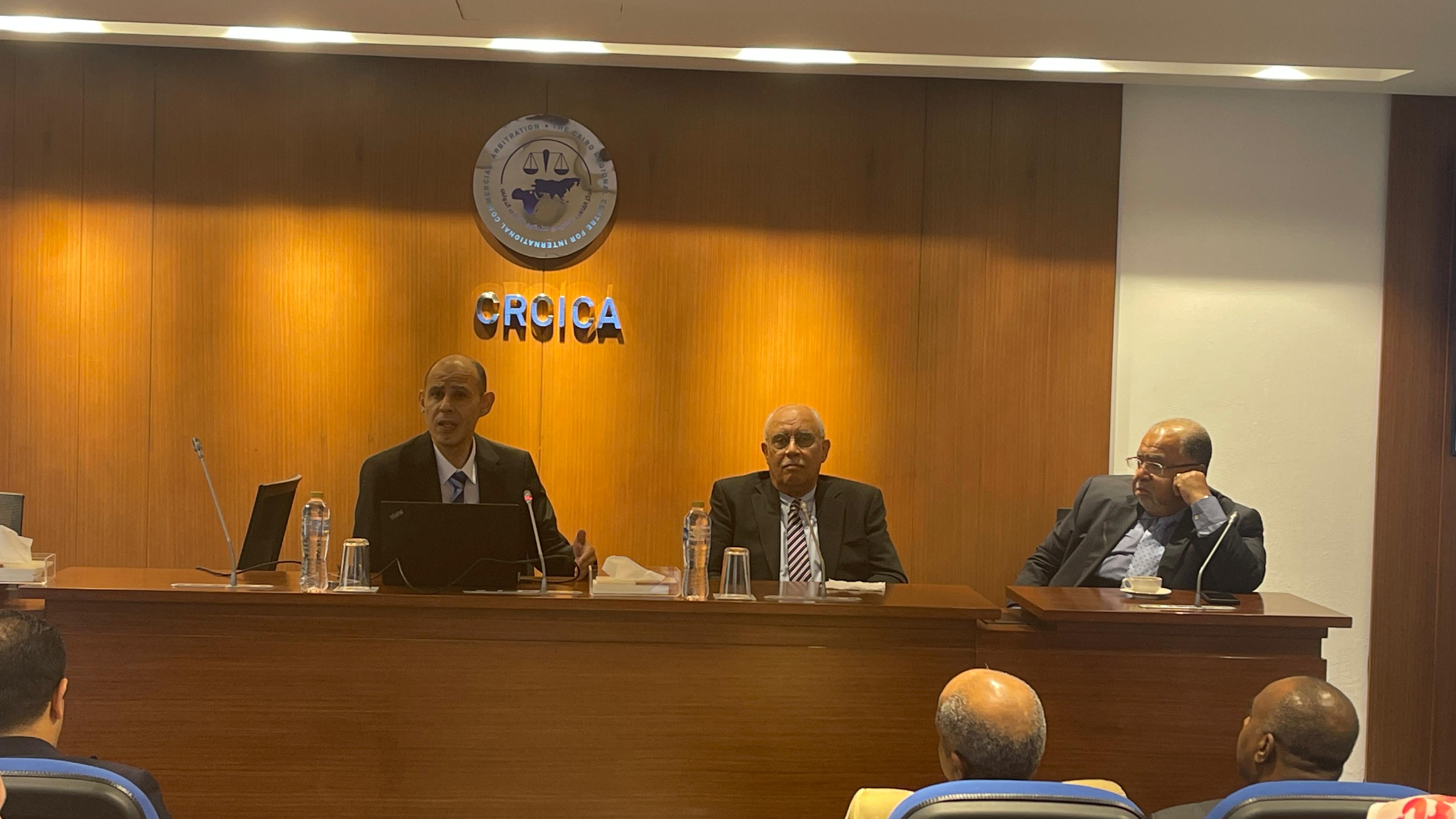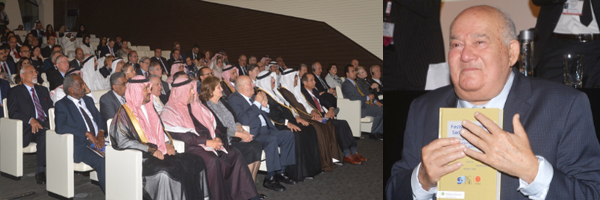On the occasion of the third Official ISPRAMED Meeting, CRCICA and ISPRAMED held an international conference on: “Independence and Impartiality of Arbitrators: Mediterranean Perspective” on 29 April, 2012, Cairo – Egypt. The Conference focused on one of ISPRAMED’s working priorities, i.e., the theme of the independence and impartiality of arbitrators.
The geographical setting of the conference screened twenty different countries in attendance; African Arab Countries: Algeria, Egypt, Morocco; Asian Arab Countries: Jordan, Syria, Kuwait, Lebanon, Saudi Arabia, UAE, Bahrain and Qatar; non-Arab African countries: Ethiopia and Kenya; European Countries (Mediterranean and otherwise): Italy, France, Ireland, Turkey, UK and finally the USA and Australia. Transcending the Mediterranean perspective of the event, this rich setting stimulates wide-scaled comparative discussions of the regulatory framework governing the independence and impartiality of arbitrators on both the international and the regional levels. Also, institutional experiences of the different arbitration centres in the Mediterranean were presented against a broader background. At the end of the Conference, a round table discussion highlighted the different viewpoints of all parties concerned in a dynamic and interactive structure.
Generally speaking, conferees supported the call for a code of ethics for arbitrators. “Many arbitrators will act with appalling levity and lack of integrity. -…the more rules, the more one is able to rid the tribunal and in due course, the arbitral community of those who act in a way that no fit arbitrator ought to.” , so said Karim Hafez, Principal of HAFEZ, who represented the viewpoint of an international lawyer.
Institutional rules and procedures were said to be a very important element supporting the impartiality of arbitrators; talking out of an international arbitrator ‘s perspective, Prof. Georges Abi-Saab, former President of the WTO Appellate Body, complained that ICSID’s method of deciding challenges places an unwelcome burden on arbitrators and deprives the whole process of the “spirit of teamwork” required. This is used to be the case when the chair of ICSID’s administrative council dismisses a challenge upheld by one member of the tribunal and the arbitrator who survived the challenge sits again on the tribunal perceiving one of his colleagues as “an adversary”.
The judicial viewpoint was presented by Coun. Borhan Amrallah, former president of the Cairo Court of Appeal, who asserted that the appointment of impartial arbitrators leads to “the pathological composition of the arbitral tribunal” which is a recurrent cause of the annulment of arbitral awards.
During the Conference, a Memorandum of Understanding was signed among the members of the ISPRAMED’s Network of Centres encouraging further cooperation among Mediterranean institutions.
CRCICA received encouraging feedbacks to keep up with holding topic-specific arbitration events which , as evaluated by attendees, support better arbitration practices. On the inter-institutional level, the Cairo ISPRAMED conference and meetings were boosting tools in the way ahead. Mr. Stefano Azzali, ISPRAMED Director, believed that “an excellent work has been done for the organization and for the realization of the 3rd Network’s Meeting and of the Conference. The brilliant results of both events will have a great impact on future activities of the Network giving new energy to our work”.
